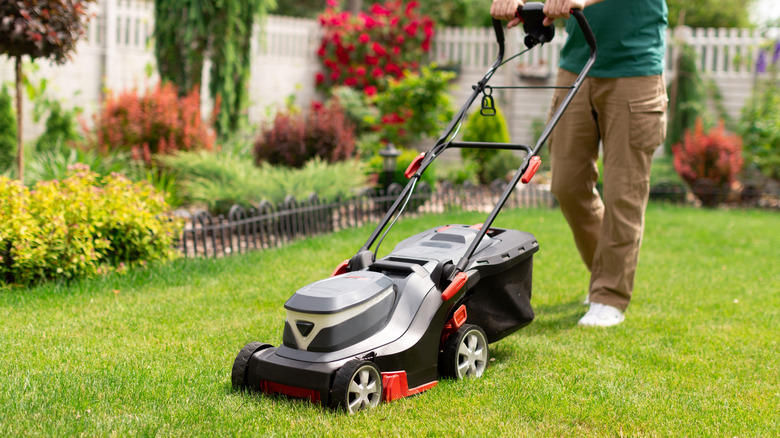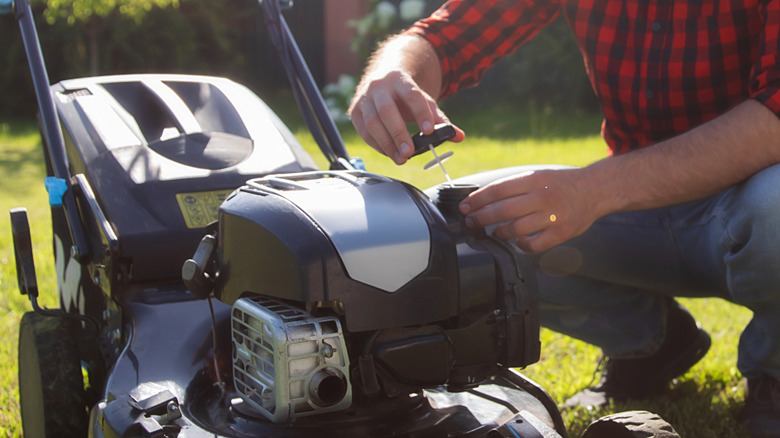Electric Vs. Gas Lawn Mowers: Which Is Cheaper To Own In The Long Run?
It's mowing season again, but your old, reliable lawn mower just broke down on you. Now, you're on the hunt for a new machine. Looking through the options from major lawn mower brands online, you'll usually come across two models: electric or gas. Electric lawn mowers run on rechargeable batteries, while gas mowers run on, well, gas. Although they mostly look similar in style (minus the obvious gas engine right out front), these two types of lawn mowers are actually quite different under the hood.
Electric lawn mowers are friendlier for the environment since they don't need fuel. They're typically quieter and lighter as well. On the other hand, gas lawn mowers are known to be more powerful and the ideal option for bigger yards, thanks to their longer runtimes.
There's also one other thing that differentiates the two: cost. This includes both the upfront cost of buying the machine and the subsequent expenses to use and maintain it. So, if you're on a budget, which is actually cheaper to own long-term?
Upfront costs
A quick glance at the prices of the lawn mowers at Lowe's, Home Depot, and any other home improvement store, and you can immediately tell that the electric models generally have a higher price tag than their gas counterparts. Most of the time, the battery-powered walk-behind lawn mowers are within the $300 to $1,000 price range. Robotic lawn mowers are a bit of a different story, with most models costing upwards of $1500 and even going as high as $5,000.
If the battery and charger are included with the machine, expect to pay more, too. For instance, Ryobi's 40V HP Brushless 20" Self-propelled Lawn Mower only costs $349 for the machine. But with one 40V 6Ah battery and the 40V fast charger, the price jumps to $429. If you're going to buy the battery and charger separately, it's an extra $279.
In comparison, the gas lawn mowers are generally more affordable up front than electric ones. Most of them fall under $500, even for big brands like Toro and Craftsman. The more expensive $800+ models are usually designed for commercial use. Unlike electric mowers, gas models only need engine oil, which costs less than $10 a quart, and unleaded fuel, which is roughly $3 a gallon.
It's important to note, though, that the price for both electric and gas lawn mowers can vary depending on the size. The larger the cutting deck, the pricier the machine gets. So, make sure to check what size best fits your yard before going out to buy a lawn mower.
Subsequent expenses
The expenses of owning a lawn mower don't end after paying for it at the store. You have to consider how much it will incur throughout its entire lifespan.
According to the Integrated Pest Management of the University of Missouri, homeowners rack up an average of 70 mowing hours every year. Meanwhile, Must Have Maintenance, a professional garden service provider, estimated that a standard 21" push lawn mower consumes around a quarter gallon of gas every hour. That means at $3.17 a gallon, you're looking at spending roughly $55 a year and $550 on gas alone for its entire ten-year life (when well-maintained, your gas lawn mower can last you even over a decade).
Then, there's the cost of maintaining the machine. Tune-up services like replacing spark plugs, changing the oil, and cleaning the air filter of your lawn mower usually range from $10 to over $200. If there are multiple tune-ups needed in one go, expect to pay roughly $100. Taking your machine for service once a year for ten years equals $1,000 in maintenance costs. This doesn't include unexpected major repairs like the crankshaft, which can go as high as $900, engine replacement for $250, and head gasket for $3,000.
Wth all that being said, electric lawn mowers are cheaper to own long-term, even if their upfront costs are greater. First off, you obviously won't need to pay for gas. Just get the batteries charged up, and you're good to go. The thing about these batteries, though, is that they don't last forever. You could get an average battery lifespan of three years before needing to buy a new battery for about $100 to $300. And since electric lawn mowers only last for about five to seven years, you might have to replace the battery just once. Maintenance-wise, electric lawn mowers don't need complex tune-ups. Just make sure the blades are sharp (which you can do yourself), the bolts and screws are tight, and the machine itself is clean.


